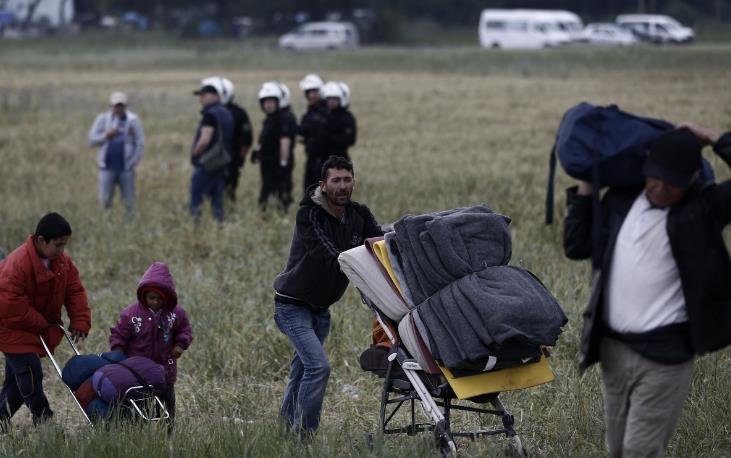The US-Mexico border has become a hotspot for thousands of migrants seeking a better life in the United States. But as they cross the river, they often leave behind their possessions that weigh them down. These abandoned items, such as backpacks, clothes or blankets, have created a micro-economy for border foragers who scavenge them for profit or charity.
A lucrative harvest
Marco Gonzalez used to fish the river between Mexico and Texas, but now he has a more lucrative harvest – possessions abandoned by the thousands of migrants crossing the border from the south. He told AFP that he started coming to the banks of the Rio Grande after finding $100 in a bag while fishing. “And since now there’s a ton of clothes here all over… I thought, I’m staying.”

Gonzalez is not the only one who benefits from the migrants’ discarded belongings. There are others who collect them and sell them to NGOs or local markets, or exchange them for food or other goods. Some even do it to help the migrants themselves, by providing them with clean clothes or blankets.
A way of life
For officers patrolling the US side of the banks and islands on the Rio Grande, the scavenging is now just part of the daily landscape. One Texas National Guardsman, who spoke on condition of anonymity, said that it has become a way of life for people who live on the border. “You see them in cities – they come to look for things to sell or exchange. Some make a living from it; others do it to help migrants.”
The island that lies halfway between the Mexican city of Piedras Negras and Eagle Pass in Texas is dotted with clothes and bags, cast off by people who stopped to rest after their first dash into the current. As an AFP team watched, a man and two children picked through the detritus, looking for anything worth having.
A political headache
The US-Mexico border has seen a surge of migrants in recent months, many of them fleeing violence, poverty or persecution in their home countries. In the last 11 months, at least 1.8 million people have reached the southern US border, according to official data. The soaring numbers are a political headache for President Joe Biden, whose Republican opponents are hammering the issue, a year out from an election.
Thousands enter the country illegally every day, some swimming across the perilous waters of the Rio Grande. As they do, they often abandon possessions that weigh them down. Francis Ibarra, a Venezuelan migrant, said that he only kept his papers and some shoes. “I left the clothes from the river there because they were all wet.”
A humanitarian crisis
The influx of migrants has also created a humanitarian crisis at the border, where many face overcrowding, unsanitary conditions and abuse. Some are deported back to Mexico or their countries of origin, while others are allowed to stay in the US pending their asylum claims. Many are also stuck in limbo, waiting for their cases to be processed or for legal assistance.
The situation has drawn criticism from human rights groups and activists, who have called for more humane and effective policies to address the root causes of migration and to protect the rights and dignity of migrants. They have also urged for more support and cooperation from regional and international partners to deal with the complex and multifaceted challenges posed by migration.
